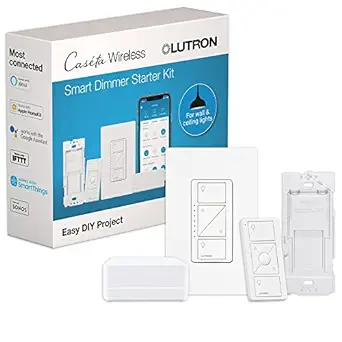Some of the products we mention and recommend may include affiliate links to allow us to offset some of the cost of running this site. For more info please read our privacy policy
Title: The Cost-Benefit Analysis of Investing in Smart Home Technology – Is It Worth It?
Introduction:
Welcome to the world of smart home technology, where everything from turning on your lights to brewing your morning coffee can be done with a simple voice command or a tap on your smartphone. With the rise of home automation systems like Apple Homekit, investing in smart home technology has become more accessible and affordable than ever before. But is it really necessary to jump on the bandwagon and upgrade your home? In this article, we will do a cost-benefit analysis to see if investing in smart home technology is worth your hard-earned money.
Cost Analysis:
The initial cost of setting up a smart home can be a major deterrent for many people. However, if we break down the costs and compare them to the long-term benefits, you might be surprised at how cost-effective it can be.
- Smart Home Hubs and Devices:
The first step in setting up a smart home is to invest in a smart hub, which acts as the central control unit for all your smart devices. A good quality smart hub can range from $50 to $300, depending on the brand and features. Additionally, you will need to purchase smart devices such as smart bulbs, thermostats, locks, and cameras, which can vary in price from $20 to $200 each.
However, the cost of these devices can be outweighed by the fact that they consume less energy, resulting in lower utility bills. For example, a smart thermostat can help reduce your energy bill by up to 20% by automatically adjusting the temperature based on your usage patterns.
-
Installation and Setup:
Depending on your technical skills, you might need to hire a professional to help you with the installation and setup of your smart devices. This can add to the initial cost but can save you from the hassle of figuring everything out on your own. Some smart home companies offer free installation services upon purchase of their products. -
Ongoing Costs:
Another factor to consider is the ongoing costs associated with maintaining a smart home. Some companies charge a monthly subscription fee for advanced features and remote access to your smart home. Additionally, you might have to replace batteries or upgrade your devices from time to time, adding to the overall cost.
Benefit Analysis:
Now, let’s dig into the benefits of investing in smart home technology and see if they justify the initial and ongoing costs.
-
Convenience:
The most significant benefit of having a smart home is the convenience it offers. You can control multiple devices with a single command or schedule tasks to be performed automatically. For example, you can set your lights to turn on when you enter a room, or your coffee maker to start brewing when you wake up. -
Energy Efficiency:
As mentioned earlier, smart home devices can help you save on your energy bills by reducing the consumption of energy. With smart thermostats, you can control the temperature in your home remotely, ensuring that you are not wasting energy when you are away. -
Improved Security:
Smart home technology also offers improved security for your home. With smart locks and cameras, you can monitor and control who enters your home, even when you are not there. Some devices even offer facial recognition technology, so you know exactly who is at your doorstep. -
Potential for Cost Savings:
While the initial costs of setting up a smart home can be high, the long-term benefits can result in cost savings. With energy-efficient devices and the potential to reduce your utility bills, smart home technology can pay for itself in the long run.
Conclusion:
After analyzing the costs and benefits of investing in smart home technology, it is clear that the benefits outweigh the costs. Not only does it offer convenience and improved security, but it also has the potential to save you money in the long run. Plus, with the constant advancements in technology, smart home devices are becoming more affordable and accessible to a wider audience.
If you are interested in upgrading your home to a smart home, be sure to do your research and compare prices and features to find the best fit for your needs and budget. With the right investment, you can turn your home into a smart and efficient living space.
Call to Action:
Ready to make your home smarter? Check out our website for more articles on smart home technology and keep up with the latest trends in home automation. Transform your home into a smarter, more efficient space today!


